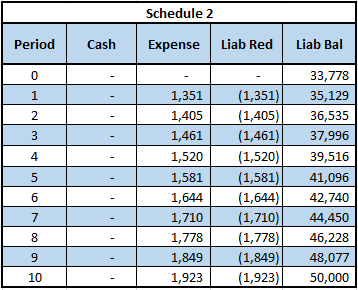
If you limit your accounting to material transactions, you can save time for your business. At the same time, you want to make sure that financial information that’s important to stakeholders is easy to access and review. Accountants should aim to provide full disclosure of all financial and accounting data in financial reports. It’s also a good idea to set your fiscal year when you start your business.

Accounting cycle FAQ
Although recording transactions manually or in Microsoft Excel sheets is acceptable, it is probably easier to use small business accounting software like QuickBooks. The first step in the accounting cycle is to identify your business’s transactions, such as vendor payments, sales, and purchases. It’s helpful to also note some other details to make it easier to categorize transactions.
What is an Accountant?
Meanwhile, initiatives underway at the AICPA and its business and technology arm CPA.com include, but are far from limited to, helping accountants develop successful advisory services. However, there are several important developments to be aware of as the industry continues to evolve. Furthermore, because CPAs have a responsibility to the users of the client’s financial statements, clients expect CPAs to uphold the profession’s rules on independence. Accountant duties, in general, involve the preparation and examination of financial records, and they possess a distinct set of skills to effectively serve as their clients’ trusted advisor.
Understand the tax obligations for your type of business.
If you don’t frequently review and update your chart of accounts, you risk having inaccurate accounting records. If your taxable supplies reach more than $1.5 million you must switch to quarterly reporting, and if they exceed $6 million, you must switch to monthly reporting. While you’re at it, identify trouble spots, and make adjustments to improve sales and margins. Your profit and loss statement (also known https://www.intuit-payroll.org/the-regular-rate/ as P&L or income statement), both for the current month and year-to-date, tells you how much you earned and how much you spent. Comparing your actual numbers to your planned numbers highlights where you may spend too much or not enough. The following accounting checklist lays out a recommended timeline for the accounting functions that will show the state of your business and streamline your tax preparation.

Bookkeeping is the recording of financial transactions in your accounting system. Business owners often hire bookkeepers to enter customer sales transactions, inventory purchases, and business expenses into their accounting software. Using the services of a bookkeeper can free up your time for more important tasks. Once posted to the general ledger, you need to balance all of your business’s transactions. Do this at the end of the accounting period, which can be monthly, quarterly, or annually, depending on the company. Known as the “trial balance,” this provides insight into the financial health of your company and can help you identify any discrepancies in your bookkeeping.
- Access a free P&L statement, balance sheet, cash flow statement, and more.
- Our reports also show how compensation plays a key role in the growing popularity of this industry.
- It’s also beneficial to have proficiency with accounting software, although the exact software type may vary depending on the firm or client they work for.
- Ideally, you should complete your bookkeeping every month so you can keep a thumb on the pulse of your income, expenses, and overall business performance.
- Tracking inventory daily is also an important control measure that reduces theft and merchandise loss.
While math skills are important, complex mathematical skills aren’t typically necessary to tackle the budgeting functions of an accountant. In short, accountants can be bookkeepers but not all bookkeepers are accountants. One advantage of manually backing up your data is that you can revert to an earlier version if you deleted something you shouldn’t have. It also allows you to discover errors that would be easier to fix by going back a few days and reentering data instead of making significant adjustments. Creating budgets for various expenses, activities and projects isn’t hard, but sticking to them can be difficult.
At tax time, carefully review your company’s full-year financial reports before giving them to your accountant. Before you sign your return, be sure to review it for accuracy based on your full-year financial reports. If the CRA audits your company and finds any underpayment of taxes, it will come to you, not your accountant, for any additional taxes, penalty, and interest. Create a payroll file sorted by payroll date and a bank statement file sorted by month.
While you’re at it, you’ll identify trouble spots and make adjustments to improve sales and margins. Reconciling your cash makes it easier to discover and correct any errors or omissions—either by you or by the bank—in time to correct them. Whether you have a seasoned or new business, brick and mortar shop, or online store, you need to handle numerous monthly accounting tasks. Most invoices are due within 30 days, noted as “Net 30” at the bottom of your invoice.
A client may hire an accountant to assist with these skills when preparing their taxes. Although many of the responsibilities of an accountant remain consistent, the tools available are changing rapidly with the emergence of new technologies. Using AI to automate basic tasks means that many accountants can focus on higher-level critical thinking skills and problem-solving for clients.
Remote working has also grown increasingly popular across many fields, including accounting. Online accountants like Mazuma and tools like accounting software support remote work so companies can track and share their financial data with accountants online. This can increase efficiency, reduce costs, and increase accuracy through the automation of the mathematical elements. Another important task for many accountants is preparing documents like tax forms. Taxes may require in-depth knowledge, particularly for businesses and self-employed individuals, and an accountant can help make that process easier and more accurate. Document preparation can also be time-consuming, so many find it more profitable to hire a certified public accountant.
Also, if your staff sells out of an item, reordering may be delayed if your system isn’t set up to allow negative inventory counts. This content is for information purposes only and should not be considered legal, accounting, or tax advice, or a substitute for obtaining such advice specific to your business. No assurance is given that the information is comprehensive in its coverage or that it is suitable in taxable income vs gross income dealing with a customer’s particular situation. Intuit Inc. does not have any responsibility for updating or revising any information presented herein. Accordingly, the information provided should not be relied upon as a substitute for independent research. Intuit Inc. does not warrant that the material contained herein will continue to be accurate nor that it is completely free of errors when published.

Accountants aid in decision-making by providing well-analyzed financial data, helping to formulate strategic business plans. Having an accountant ensures a business stays compliant with the various regulations, saving the company from penalties and maintaining its reputation. A bachelor’s degree in accounting or a related field is typically the minimum requirement for an accountant.
Knowing how much you expect to receive and how much you expect to pay during the upcoming weeks and months is important, too. If becoming an accountant is the next step in your career, there are many resources available, such as accounting programs to help you prepare for this role. There are many applications of data analytics in the world of accounting. For example, https://www.kelleysbookkeeping.com/ auditors are using analytics to enable processes like continuous monitoring and auditing. In the wake of accounting scandals and increased scrutiny following the 2008 financial crisis, it has been important to restore trust and credibility to the profession. As such, an industry-wide push for transparent reporting has influenced the financial reporting process.
When it comes to daily accounting business needs, you have a pretty light plate. You have plenty of financial statements to review every week, month, quarter, and so on, but your daily business accounting responsibilities consist of one main task. There are, of course, various types of accountant jobs and areas of specialty.